Nicola and the Viscount Read online
Page 13
"You shouldn't have done that, Nicola," the Milksop said. "You should not have done that at all."
"Should not have done what?" Nicola asked bewilderedly.
"Told Father that you knew about the connection between Edward Pease and Lord Farelly. Worse, that you knew of the plan to build the railroad."
"Whyever not?" Nicola demanded. "It's the truth, isn't it?"
"Yes," Harold said. "But you oughtn't to have admitted you knew. When I told you his name—Edward Peases name—I didn't have any idea that you suspected who he was, or what his connection to Lord Farelly might be."
"So?" Nicola said. She greatly disliked riddles, and this was shaping up to look like the greatest riddle of all time. "Really, Harold, what is all of this about? You are being most tiresome."
It was then that the Milksop, gripping her hand very hard, dragged her toward him and said, in tones of great urgency, "Nicola, you are in danger. Grave danger. Danger of your life!"
CHAPTER FOURTEEN
Nicola looked up at her cousin Harold and said, not at all impressed, "Really, Harold. Must you be so dramatic?"
The Milksop drew a little away from her and said, looking hurt, "I really mean it, Nicola. These men aren't joking. They mean business."
"I'm quite sure," Nicola said, brushing at the sleeve he'd crushed when he'd dragged her toward him. "I suppose they are going to kill me so that your father inherits the abbey, and can sell it and collect the twelve thousand pounds himself."
The Milksop looked appalled. "Twelve thousand pounds? Oh, Nicola. There is a great deal more money involved than that. The twelve thousand was only your share. Father was going to get quite a bit more than that if he convinced you to sell."
"Really," Nicola said coolly. "Well, isn't that nice?"
She looked about the ballroom. All around her, people were busy dancing and gossiping, flirting and fanning themselves. There wasn't a single other girl who looked as if she'd just found out her sole relations were plotting to kill her, then rob her of her birthright. Really, Nicola thought crossly. This being blown about like a thistle business is not turning out tie way I'd hoped.
"Well?" Nicola turned her hostile gaze toward her cousin. "Now that you've imparted your awful news, what do you propose I do about it?"
The Milksop looked alarmed. His piggy eyes blinked rapidly. "Do?" he echoed stupidly. "Well, isn't it obvious? You've got to go into hiding."
"Hiding?" Nicola nearly burst out laughing. "Oh, I hardly think so. I think it would make more sense to go to the magistrates, don't you?"
"Oh, you mustn't do that!" the Milksop exclaimed. "Think of the scandal!"
"Harold." Nicola glared at him. "You said my life is in danger. Grave danger, you said. And you're worried about the scandal my going to the magistrates about it would cause? I suppose my murder would be more socially respectable?"
Harold looked sheepish. "Well . . . perhaps I was a bit hasty. I wouldn't say grave danger. I think they mean only to frighten you a bit, I couldn't quite hear. . . . I was listening at the keyhole, you see."
"Then your information," Nicola said dryly, "is surely a bit suspect, don't you think?"
"Nicola, I know what I heard. They are planning something—my father and Lord Farelly—and whatever it is, you can bet it isn't going to be good. If you have any sense at all, you'll leave London at once."
She gave a delicate snort.
"Oh, dear," the Milksop said. "I thought that's what you'd say. Still, I thought I'd give it a try." Then, brightening, he added, "There's always a chance that they don't mean to kill you, you know. Perhaps they only want to frighten you. . . ."
"How reassuring," Nicola said. "Well, if going to the police won't help, what am I to do, then?"
The Milksop licked his lips. He appeared nervous . . . even more nervous than usual.
"Well," he said. "I have been thinking of a plan . . . as a bit daring, though."
Nicola could not help thinking that, to the Milksop, going down to the corner to buy a newspaper might seem daring. Nevertheless, she said with forced patience, "Tell me, Harold."
"Well," Harold said, "I don't suppose you are aware of the fact that I design clothing for men."
Nicola's gaze dropped—with some misgiving—to the umber evening coat and breeches. "No," she said. "Do you mean to tell me that you, Harold, designed this . . . ensemble you are currently wearing?"
The Milksop all but preened. "Yes, indeed. Do you like it?"
Nicola murmured, "It's quite . . . original."
"I think so, too. But you know it seems as if here in England, people's tastes in men's wardrobe run very conservatively. My designs don't seem at all the thing. Which was why lately . . . well, Nicola, lately I've been thinking of decamping for . . . well, America."
It was Nicola's turn to blink. She did so, astonishedly. "America, Harold? You?"
The Milksop gave a shaky laugh. "Its mad, I know. But I can't help thinking it might be the best plan. Father would . . . well, you know he would never support my going into the fashion business. But in America, you see, I could make a fresh start. And people are a good deal more accepting of new things in America. . . ."
Nicola could not help feeling a pang of pity for residents of Boston or New York, who would soon be subjected to her cousin Harold's whimsical ideas of what men's clothing should be.
"Oh," was all she said, however. "How nice for you."
It was at this point that Harold reached out and took her hand once more. On his bland, pasty-skinned face was a look of agitation.
"No, Nicola," he said. "You don't understand. I'm asking you to come with me to America. You know—I know you do—a good deal about dressmaking and things. I was thinking that you could help me to open a little shop. Together we could bring daring fashion to the United States. . . . And you'd be safe there, you see."
Nicola could not help feeling touched by this generous invitation. Still, she had no more desire to move to America with the Milksop than she had to allow the Blutcher to roll through her front parlor.
"Harold, that is kind of you," she said, giving his hand a squeeze, and then dropping it, as his fingers had grown quite damp in hers. "But as I'm sure you're aware, I've never been one to run from a battle, and now is really no different."
The Milksop looked disappointed, but not surprised. His shoulders slumped beneath the pads in his absurd evening coat, he said, "I did think as much. But just in case you change your mind, I want you to know I've taken passage on a ship that leaves tomorrow night for Philadelphia. I've got a room at the inn across from the slip where the boat's docked . . . the White Dog. I'll be there if you need to find me."
"I won't," Nicola assured him, just as Nathaniel stepped up and said, in that voice she had always found insufferably teasing, but which now she knew was merely friendly, "Nicky, the Sir Roger's corning up next. Will you have a go at it with me? You promised last week."
Nicola had promised no such thing. Nathaniel, bless him, was only trying to help, apparently thinking that Harold was trying to procure her hand for the next dance, not lure her to America with the information that her uncle was looking to kill her.
She explained as much when, moments later, they were dancing together.
"Kill you?" Nathaniel cried, looking very shocked indeed. "Nicky!"
"Well, maybe not kill me," Nicola said. "Maybe they only intend to frighten me. Harold wasn't particularly sure. He was listening at the keyhole, you see—"
"We've got to inform the magistrates at once," Nathaniel said, his grip on her hand very tight.
"And tell them what, Nat? That my cousin, who has always been something of an alarmist, thinks he heard his father say he intends to kill me?"
Nathaniel frowned. Even frowning, Nicola was somewhat stunned to note, Nathaniel Sheridan looked handsome.
"This is serious, Nicky," Nathaniel said. "I'm going to speak to my father about it. There must be something—"
Alarmed, Nicola cried, "
Oh, Nat, don't! Please don't say anything to your father. I don't want everyone in the world to know that Sebastian Bartholomew was only marrying me because his father wanted to put a railway through my family home. It's bad enough," she added bitterly, "that you know it."
Nathaniel, though they were in the middle of a dance, stopped moving suddenly, and looked down at her with unnaturally bright eyes that, in the candlelight, seemed to glow almost gold, like a cat's.
"Nicola," he said, in a voice much fuller than his usual tone. The deepness of his tone, coupled with the cat eyes and the fact that Nathaniel only rarely referred to her as anything but Nicky, caused her to take a quick, involuntary step backward . . .
. . . Ensuring that she would never learn what it was Nathaniel had been about to say to her, as she collided into the man who'd come up behind her.
"Miss Sparks."
Nicola, who'd lost her balance, nearly stumbled again at the familiar voice. But Lord Sebastian, into whom she'd crashed, reached out a steady hand and, grasping her by the hand, righted her again.
"How fortunate that we should happen to meet like this," the man whom she'd once thought a god said pleasantly enough. His blue eyes, however, fairly crackled with animosity, belying his friendly tone. "I'd been hoping we might have a word."
"She's got nothing to say to you, Farnsworth." Nathaniel took hold of Nicolas free hand and tugged. "Come along, Nicola."
But Lord Sebastian kept a firm grip on Nicola's other hand.
"I rather think," the viscount said, "that Miss Sparks can decide for herself whether or not she has anything to say to me."
Nicola had nothing to say to Lord Sebastian. But at the same time, she did not want to cause a scene at Almack's. Already too many heads were turning in her direction. It was quite bad enough that she was already known as the girl who'd broken off her engagement to the personable Lord Sebastian. She did not need to make things worse by being the cause of a brawl in the middle of the Sir Roger de Coverley.
"It will be all right," she said to Nathaniel, gently slipping her fingers from his. "I'll just be a moment."
Nathaniel looked as if he would have liked to argue, but Nicola did not give him a chance to. Instead, she slipped her hand through the crook of Lord Sebastian's elbow, then said to that illustrious personage, out of the corner of her mouth, "Make this quick, my lord. I haven't the time nor the patience for any nonsense."
Lord Sebastian, nodding affably to the many matrons they passed—who, upon seeing the viscount together with his former fiancee, bent their heads together to whisper energetically—looked completely unaffected by her words.
"Come, come, Nicola," he said as he waved to a maiden aunt some distance across the room. "Did you really think you could avoid me forever?"
"I was hoping so," came Nicola's prompt reply.
"You wound me," Lord Sebastian said, looking almost as if he meant it. "You slay me to the quick. Why have you returned all my letters unopened?"
"Because I didn't care to read what you had to say in them," Nicola informed him coldly.
If this bothered him, he did not let on. "Why won't you see me when I come to call?"
"Because I despise you," Nicola said.
"I don't believe you," Lord Sebastian said. They'd reached a little antechamber, the only occupants of which, upon observing them, soon left, with raised eyebrows and knowing expressions. This allowed the viscount to behave even more foolishly than he was already, as there was no one about to observe him. He fell to one knee before Nicola, and, still gripping her hand, brought it to his lips.
"Nicola!" he cried. "How can you be so cruel to a man whose only crime has been to love you too well?"
"Do get up," Nicola said in some disgust. "You look a fool. And if you loved me too well, it's news to me. Last I heard, you thought me jolly, which I hardly consider an attribute likely to render a man in love. Now what's this I hear about your father plotting with my guardian to kill me?"
Lord Sebastian looked taken aback, which surprised Nicola a little.
"Kill you?" he echoed. "He wouldn't dare. If you were to die, Nicola, my heart too would cease its beat—"
"Oh, do shut up about all that," Nicola advised him. "Tell me what your father plans to do about Beckwell Abbey. Because I won't sell. Not while I've a breath left in my body. You might as well tell him that."
Lord Sebastian sighed, and, after climbing to his feet, reached down to brush the dust from the knees of his breeches.
"Nicola," he said, in quite a different tone. It was, Nicola supposed, his real voice. Odd that she should be hearing it for the first time now, after everything between them was at an end. "Why cant you just be a good girl and marry me? We'd have a nice enough time of it, you know."
Nicola tapped her foot impatiently.
"Because I don't want to have a nice enough time of it," she said with some asperity. "When I marry, my lord, it will be because I feel for my husband—and he for me—a burning passion, the fires of which can never be quenched. We won't have a nice enough time. We will find heaven in one another's arms. Is that clear enough for you?"
Lord Sebastian's lower lip jutted out a little. Nicola supposed at first he was pouting, but then realized this was the expression her former fiance wore when he was thinking.
"Passion's all very well," he said, at length, "but wouldn't you rather have fun? Because I can promise you, Nicola, if you marry me, that's what we'll have. We can even go away from here, if you want. To Greece or something. I've heard there's all sorts of fun to be had in Greece."
"I don't want to go to Greece, my lord," Nicola said. "What I want is to know what ridiculous plan your father and the Grouser are launching. Do you know? If you do, I'd appreciate your telling me. And if you don't, then I'd appreciate your not wasting any more of my time."
Lord Sebastian made a face. Now, Nicola could tell, he really was beginning to pout.
"You really are the most troublesome creature, Nicola," he complained. "Any other girl would leap at the chance to marry me. I'm a most obliging fellow, you know."
Nicola, unimpressed by this argument, said only, "That's it. I'm leaving," and turned to go.
"Wait," Lord Sebastian cried.
Nicola paused beneath the archway leading back to the main assembly room, her expression inquisitive. "Yes, my lord?"
The viscount sighed and, looking down at his slippers, grumbled, "Why do you have to make everything so complicated?" Then, looking up, he said, "Fine. All right. Yes, there was some talk of having you declared insane—"
"Committed?" Nicola squeaked, in true alarm.
"Right. To an institution. Then your uncle would be able to take over your business affairs—"
"He's not my uncle," Nicola interrupted sharply.
"But," Lord Sebastian continued as if she hadn't spoken, "my father was able to talk him out of such a ridiculous scheme by pointing out that you've got enough friends—the Sheridans, and all—who would be likely to come out and swear to your sanity, that he'd never make it stick. So he abandoned that plan."
Nicola, her face clouding over with anger, said through gritted teeth, "I should hope so! Mad! Me! I've never heard anything so ridiculous in my life." Then, narrowing her eyes, she said, "Well, go on. That can't be all. I imagine there was a secondary plan, should the first fail."
"Oh, come, Nicola," Lord Sebastian said with some impatience of his own. "The whole world does not, despite what you evidently believe, revolve around you. I think your uncle's quite given up on the idea of ever getting hold of Beckwell Abbey."
Nicola narrowed her eyes even more. "Why don't I believe you?"
"Nicola, I swear!" Lord Sebastian looked annoyed. "Yours isn't the only property in Northumberland they were looking at, you know. The fact that you won't sell will hardly put a halt to their plans of expanding. They'll simply lay the railroad around Beckwell Abbey, instead of through it, and that will be an end to it."
Nicola wasn't about to trust a young
man who had, only a week ago, been perfectly willing to marry a girl with whom he was not in the least in love. But she had to admit, the viscount looked truthful enough. He seemed quite fed up with the conversation, which was proof enough he probably wasn't lying to prolong it.
"Nicky?"
They both looked up to see Nathaniel Sheridan standing in the archway, his back ramrod straight, and his jaw set . . . a little dangerously, Nicola thought. That muscle she'd noticed once before was drumming a steady beat there, as well.
Lord Sebastian noticed it, too. But he seemed to misinterpret it, if his next words were any indication.
"Don't worry," the viscount said with some disgust in his tone as he brushed past Nathaniel on his way through the archway. "She's all yours."
Nicola felt her cheeks go crimson. It's not like that, she almost cried. It's not like that at all! She and Nathaniel were friends, and that was all.
But Nathaniel, rather than denying the implication in Lord Sebastians tone, said nothing at all. Instead, he stepped out of the other young man's way. Then, once the viscount was gone, Nathaniel turned to Nicola and held out his hand.
"Come on," he said. "Let's go home."
And suddenly—though it didn't make the slightest bit of sense—Nicola began to wish Lord Sebastian had been right . . . that she and Nathaniel were more than simply friends.
But that, of course, was ridiculous. Nathaniel Sheridan was nothing to her, except the elder brother of her most bosom friend. And a fairly annoying elder brother, at that, who was forever putting down her love for romantic poetry and dress patterns. She could not possibly wish that there were anything more between them. . . .
Or could she?
CHAPTER FIFTEEN
Dear Nana, wrote Nicola. I hope this letter finds you and Puddy well. Quite a lot has happened since I last wrote you. I am very sorry to have to tell you that I was fined to break my engagement to Lord Sebastian. It turns out that he—
Nicola paused in her letter writing to nibble on the end of her quill. How, she wondered, was she to put this next part, exactly? She didn't want to upset Nana, but she didn't like to lie, either.

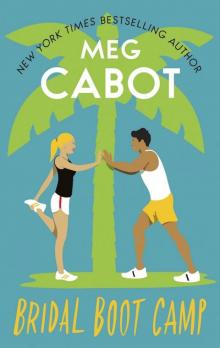 Bridal Boot Camp
Bridal Boot Camp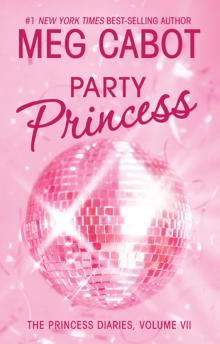 Party Princess
Party Princess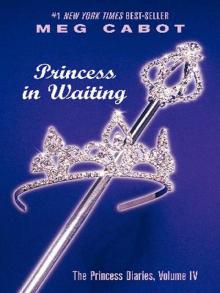 Princess in Waiting
Princess in Waiting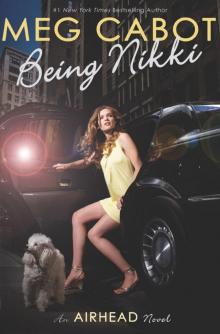 Being Nikki
Being Nikki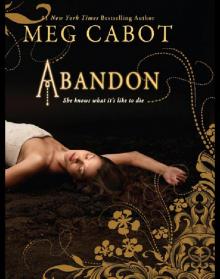 Abandon
Abandon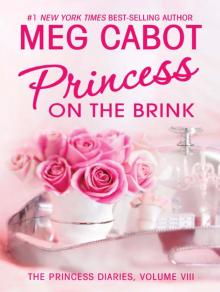 Princess on the Brink
Princess on the Brink Darkest Hour
Darkest Hour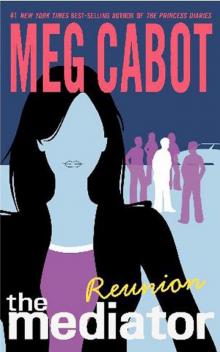 Reunion
Reunion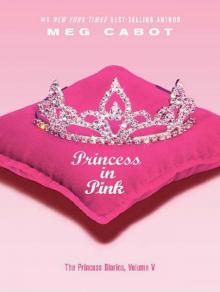 Princess in Pink
Princess in Pink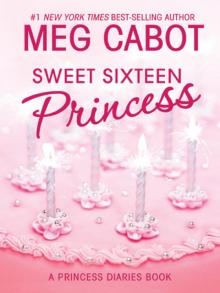 Sweet Sixteen Princess
Sweet Sixteen Princess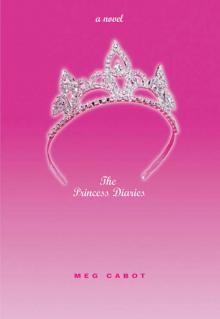 The Princess Diaries
The Princess Diaries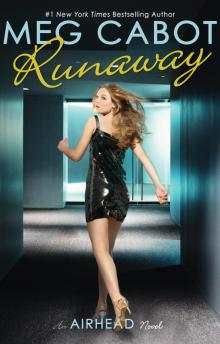 Airhead
Airhead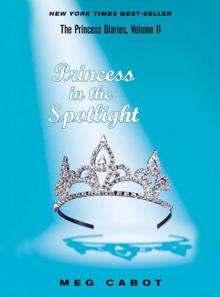 Princess in the Spotlight
Princess in the Spotlight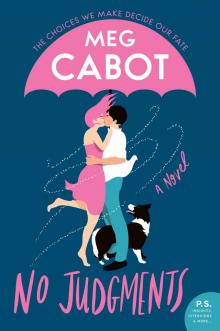 No Judgments
No Judgments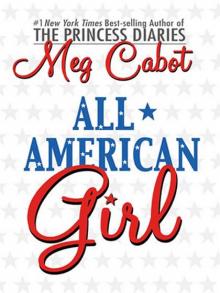 All-American Girl
All-American Girl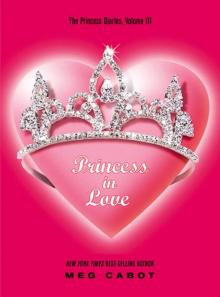 Princess in Love
Princess in Love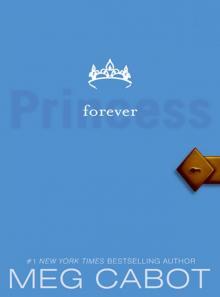 Forever Princess
Forever Princess Haunted
Haunted Shadowland
Shadowland Twilight
Twilight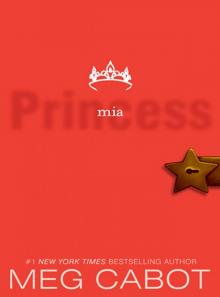 Princess Mia
Princess Mia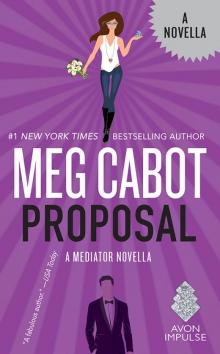 Proposal
Proposal Remembrance
Remembrance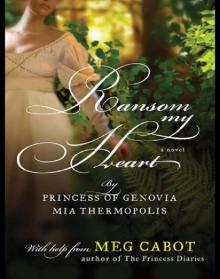 Ransom My Heart
Ransom My Heart Underworld
Underworld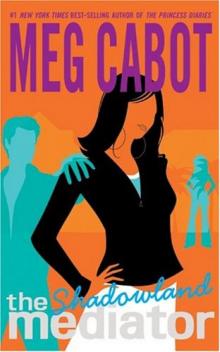 Shadowland tm-1
Shadowland tm-1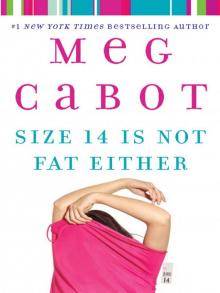 Size 14 Is Not Fat Either
Size 14 Is Not Fat Either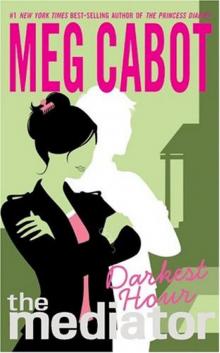 Darkest Hour tm-4
Darkest Hour tm-4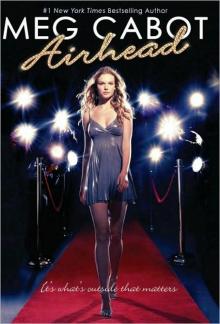 Airhead a-1
Airhead a-1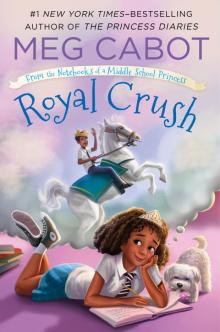 Royal Crush
Royal Crush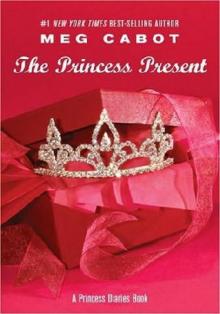 The Princess Present (princess diaries)
The Princess Present (princess diaries)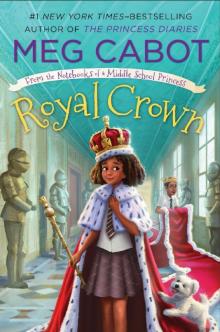 Royal Crown
Royal Crown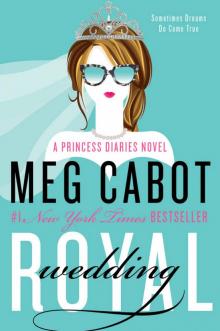 Royal Wedding: A Princess Diaries Novel (The Princess Diaries Book 11)
Royal Wedding: A Princess Diaries Novel (The Princess Diaries Book 11)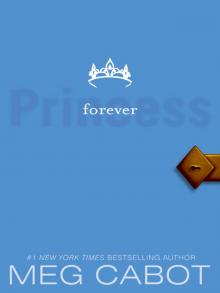 Princess Diaries, Vol. X: Forever Princess
Princess Diaries, Vol. X: Forever Princess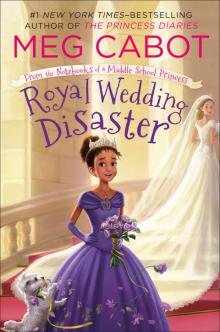 Royal Wedding Disaster
Royal Wedding Disaster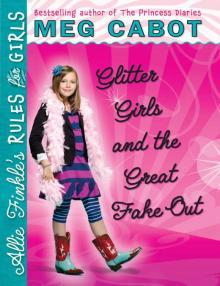 Allie Finkle's Rules for Girls: Glitter Girls and the Great Fake Out
Allie Finkle's Rules for Girls: Glitter Girls and the Great Fake Out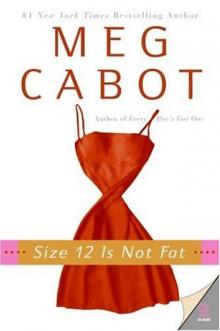 Size 12 Is Not Fat hwm-1
Size 12 Is Not Fat hwm-1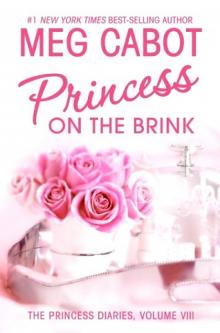 Princess on the Brink pd-8
Princess on the Brink pd-8 The New Girl
The New Girl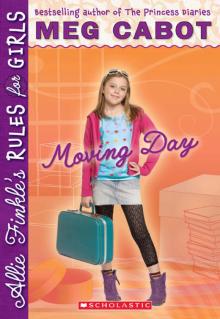 Allie Finkle's Rules for Girls: Moving Day
Allie Finkle's Rules for Girls: Moving Day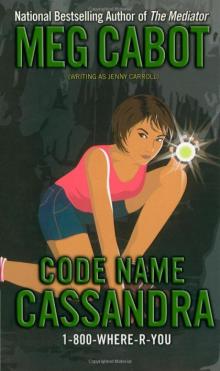 Code Name Cassandra
Code Name Cassandra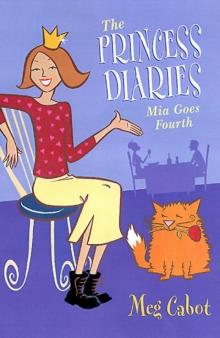 Mia Goes Fourth pd-4
Mia Goes Fourth pd-4 Sanctuary 1-4
Sanctuary 1-4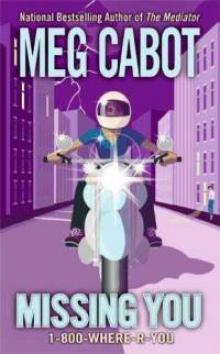 Missing You 1-5
Missing You 1-5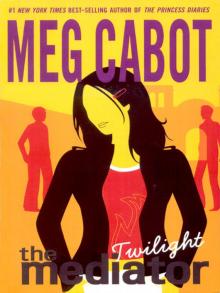 The Mediator 6: Twilight
The Mediator 6: Twilight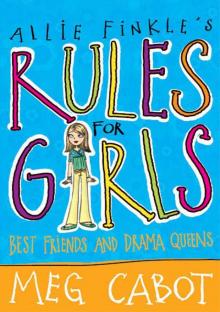 Allie Finkle's Rules for Girls: Best Friends and Drama Queens
Allie Finkle's Rules for Girls: Best Friends and Drama Queens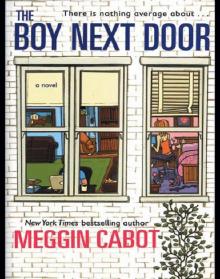 The Boy Next Door
The Boy Next Door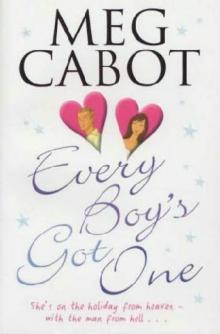 Every Boy's Got One
Every Boy's Got One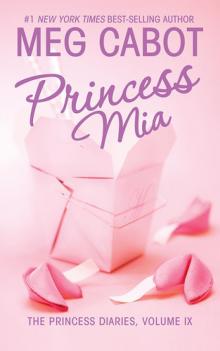 Princess Mia pd-9
Princess Mia pd-9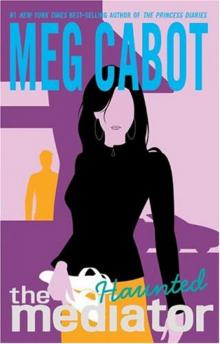 Haunted tm-5
Haunted tm-5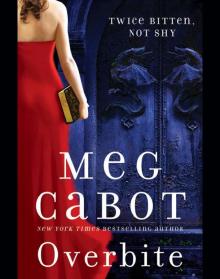 Overbite
Overbite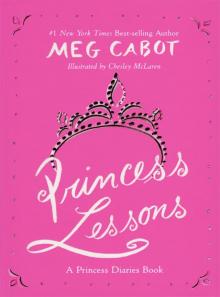 Princess Lessons
Princess Lessons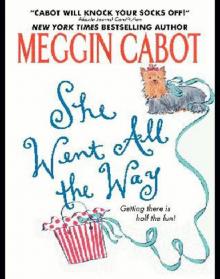 She Went All the Way
She Went All the Way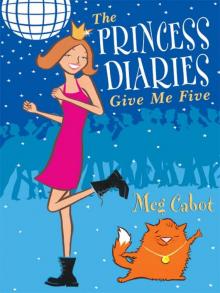 Give Me Five pd-5
Give Me Five pd-5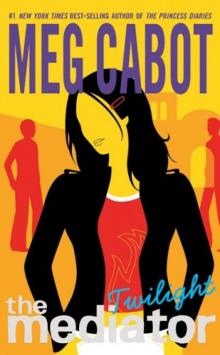 Twilight tm-6
Twilight tm-6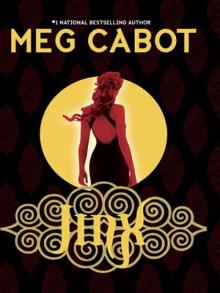 Jinx
Jinx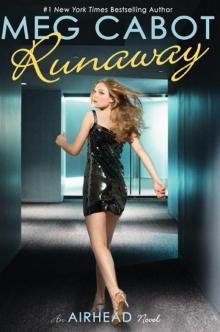 Runaway (Airhead #3)
Runaway (Airhead #3)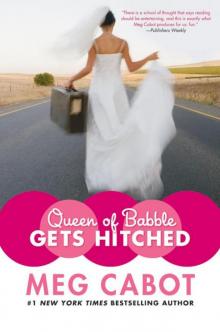 Queen of Babble Gets Hitched qob-3
Queen of Babble Gets Hitched qob-3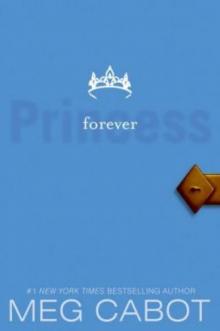 Forever Princess pd-10
Forever Princess pd-10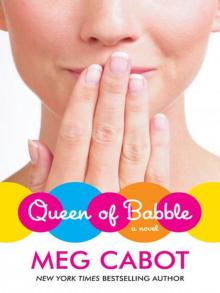 Queen of Babble
Queen of Babble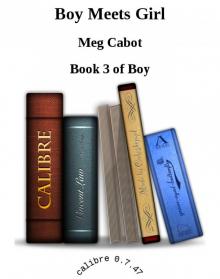 Boy Meets Girl b-3
Boy Meets Girl b-3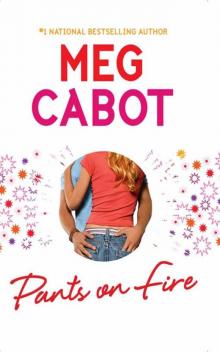 Pants on Fire
Pants on Fire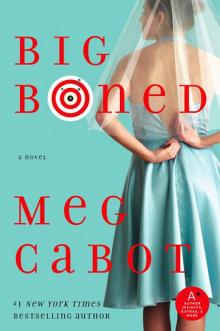 Big Boned ху-3
Big Boned ху-3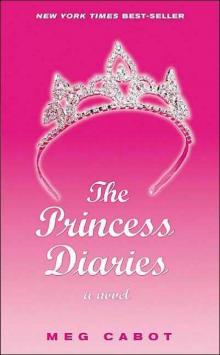 Princess' Diaries pd-1
Princess' Diaries pd-1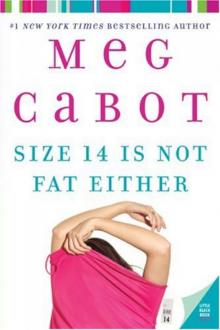 Size 14 Is Not Fat Either hwm-2
Size 14 Is Not Fat Either hwm-2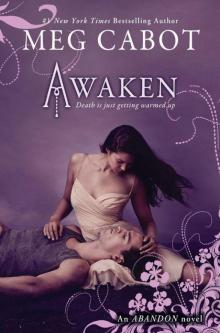 Awaken a-3
Awaken a-3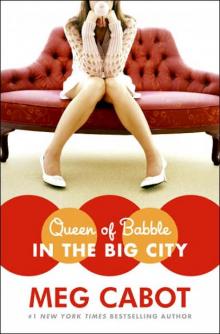 Queen Of Babble: In The Big City qob-2
Queen Of Babble: In The Big City qob-2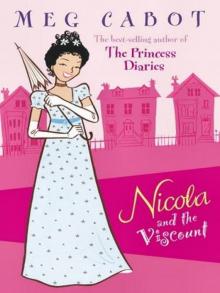 Nicola and the Viscount
Nicola and the Viscount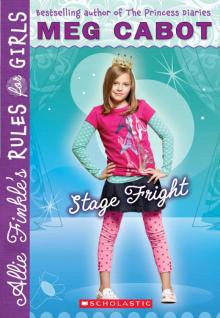 Allie Finkle's Rules for Girls: Stage Fright
Allie Finkle's Rules for Girls: Stage Fright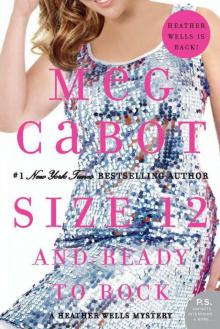 Size 12 and Ready to Rock
Size 12 and Ready to Rock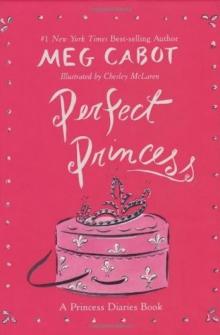 Perfect Princess
Perfect Princess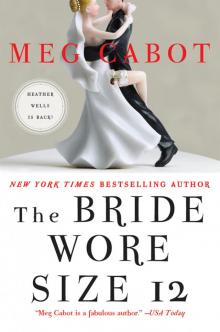 The Bride Wore Size 12
The Bride Wore Size 12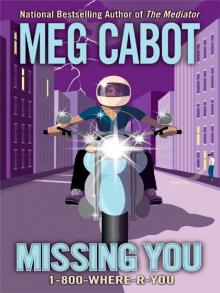 1-800-Where-R-You: Missing You
1-800-Where-R-You: Missing You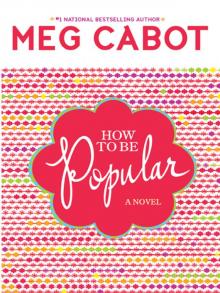 How to Be Popular
How to Be Popular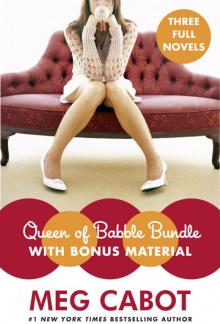 Queen of Babble Bundle with Bonus Material
Queen of Babble Bundle with Bonus Material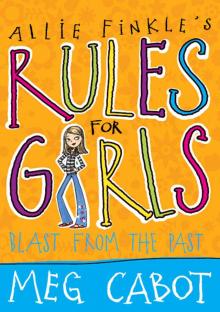 Allie Finkle's Rules for Girls: Blast from the Past
Allie Finkle's Rules for Girls: Blast from the Past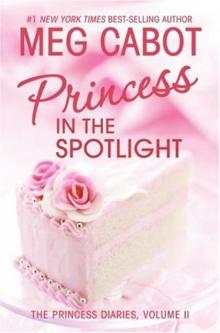 Princess in the Spotlight pd-2
Princess in the Spotlight pd-2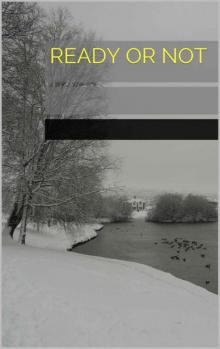 Ready or Not
Ready or Not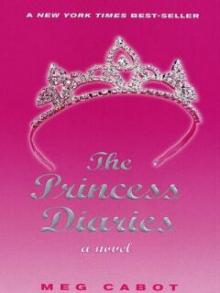 The Princess Diaries I
The Princess Diaries I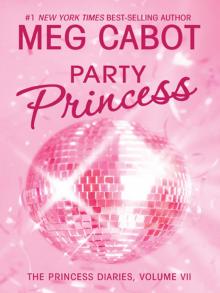 Party Princess pd-7
Party Princess pd-7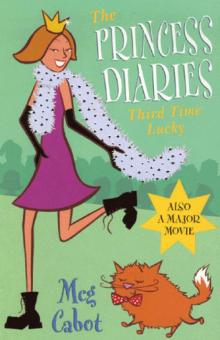 Third Time Lucky pd-3
Third Time Lucky pd-3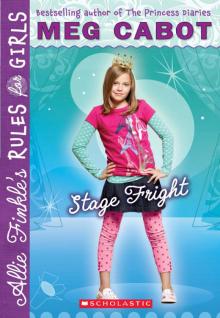 Stage Fright
Stage Fright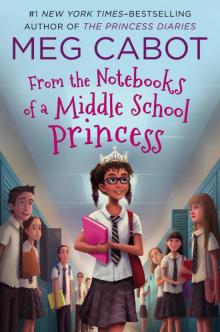 From the Notebooks of a Middle School Princess
From the Notebooks of a Middle School Princess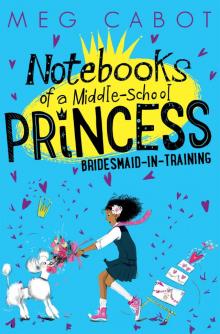 Notebooks of a Middle-School Princess Bridesmaid-in-Training
Notebooks of a Middle-School Princess Bridesmaid-in-Training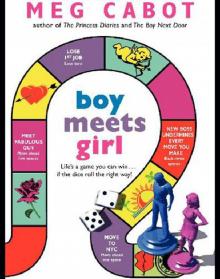 Boy Meets Girl
Boy Meets Girl Missing You
Missing You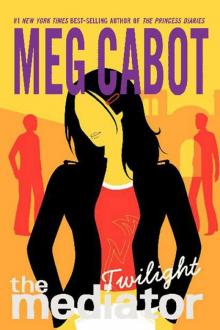 The Twilight
The Twilight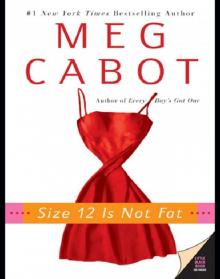 Size 12 Is Not Fat
Size 12 Is Not Fat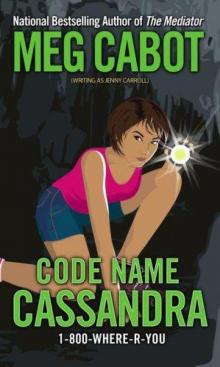 Code Name Cassandra 1-2
Code Name Cassandra 1-2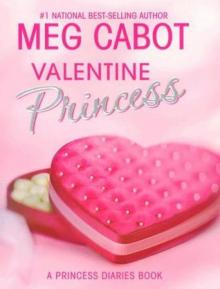 Valentine Princess
Valentine Princess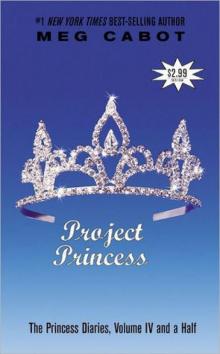 Project Princess
Project Princess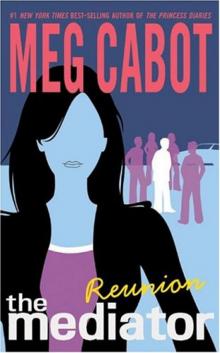 Reunion tm-3
Reunion tm-3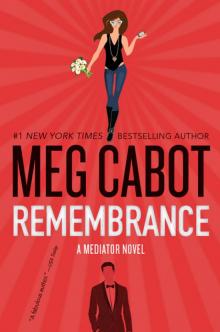 Remembrance: A Mediator Novel
Remembrance: A Mediator Novel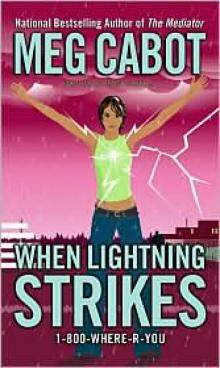 When Lightning Strikes 1-1
When Lightning Strikes 1-1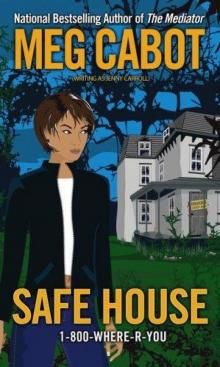 Safe House 1-3
Safe House 1-3 Teen Idol
Teen Idol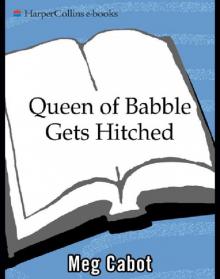 Queen of Babble Gets Hitched
Queen of Babble Gets Hitched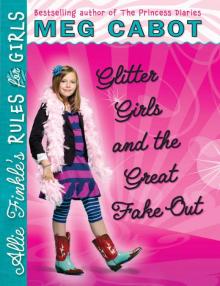 Glitter Girls and the Great Fake Out
Glitter Girls and the Great Fake Out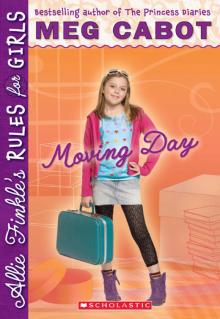 Moving Day
Moving Day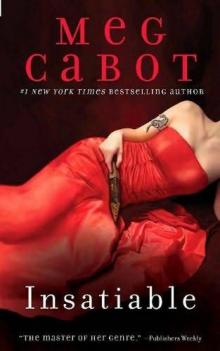 Insatiable
Insatiable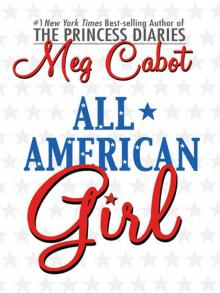 All American Girl
All American Girl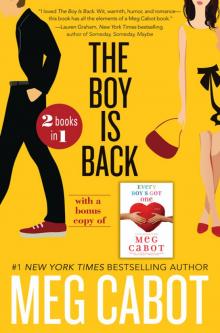 The Boy Is Back + Every Boy's Got One Bundle
The Boy Is Back + Every Boy's Got One Bundle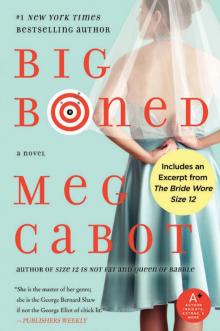 Big Boned
Big Boned Awaken
Awaken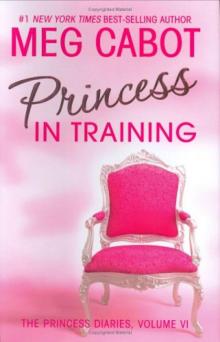 Princess in Training pd-6
Princess in Training pd-6